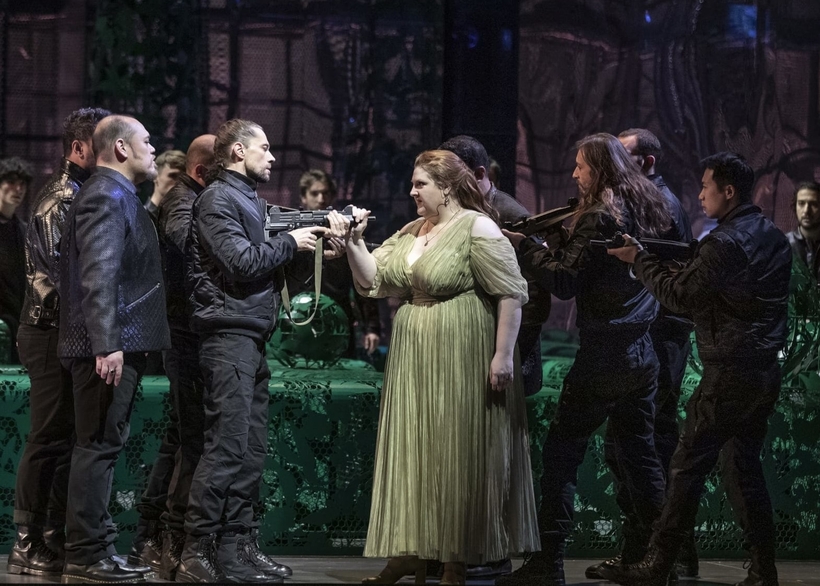At the Metropolitan Opera, Vincenzo Bellini (1801–1835) reigns this fall, with temptingly cast new productions of the easy-to-love La Sonnambula and I Puritani. For a radically different look at the short-lived bel canto icon, check out his vanishingly obscure Beatrice di Tenda, filmed live at the Paris Opéra following its company premiere in February 2024.
The director and presumptive prime mover of the project is wunderkind-turned-éminence grise Peter Sellars, as always marching to his own drum. For the record, it’s also his first-ever foray into the Italian mainstream. Has he departed from his tried-and-true theatrical style, you wonder? The answer is no.
“I live for Verdi,” Sellars says in video comments on the Opéra Web site, holding forth in fluent, English-subtitled French. “But his is a vocal and musical culture to which I don’t belong. Maybe Beatrice di Tenda gives me a doorway to participate in an art form that I love but that has never been mine.”
Certainly, he has earned the privilege. Unknown, underrated, highly experimental, and deeply personal, Beatrice di Tenda has been a Sellars obsession for 25 years. To his mind, it reads as Bellini’s reckoning with the scourges of tyranny and injustice. “Today, we have more dictatorships than ever,” he notes, name-checking Trump and Putin. “Why is it that we accept governments that crush imagination and human rights? Bellini is not a fighter, as Beethoven was. He channels his dismay into threads of sound of the utmost delicacy. People are fragile. It’s easy to break them.”
Like Bellini’s eponymous Druid priestess in Norma, Beatrice dominates her society by virtue of rank as well as personal charisma. And it’s right there that the parallels end. The agent of Beatrice’s downfall is the upstart tyrant she marries so as to isolate her subjects from his tender mercies. But his passion cools, her influence wanes, and she’s tortured for a false confession. Faced with a death sentence, she nobly clings to her truth.
By definition, bel canto is a vehicle for the voice. For Sellars, the vocal display in Beatrice di Tenda keys into existential quandaries that are as much our own as Bellini’s. Don’t blame him if Romani’s meandering dramaturgy often leaves you baffled; happily, perplexity in this case is no obstacle to engagement. The aching loveliness of Bellini’s melodies is its own reward. It’s not just the voices that sing. Listen, especially, for solos from members of the wind and brass sections. The harp has magic moments, too.
In the title role, briefly associated with Joan Sutherland first skyrocketing as La Stupenda, the dramatic soprano Tamara Wilson bestrides the stage like a colossus but scales back her gale-force power to float phrases of spun platinum. Pene Pati, arguably the sunniest and most likeable tenor since Luciano Pavarotti, touches the freedom-fighting minstrel Orombello—Beatrice’s supposed lover—with disarming pathos. (For the record, Pavarotti sang this role with Sutherland.) The seconda donna Agnese, who likes to stir the pot, falls to the bright-toned soprano Theresa Kronthaler, who never misses a chance to shine, and she has plenty. The supersuave baritone Quinn Kelsey is luxuriously miscast as Beatrice’s spineless, sex-starved husband Filippo, but the disconnect lies in the score.
Beatrice di Tenda is available for streaming on Paris Opera Play
Matthew Gurewitsch writes about opera and classical music for AIR MAIL. He lives in Hawaii

